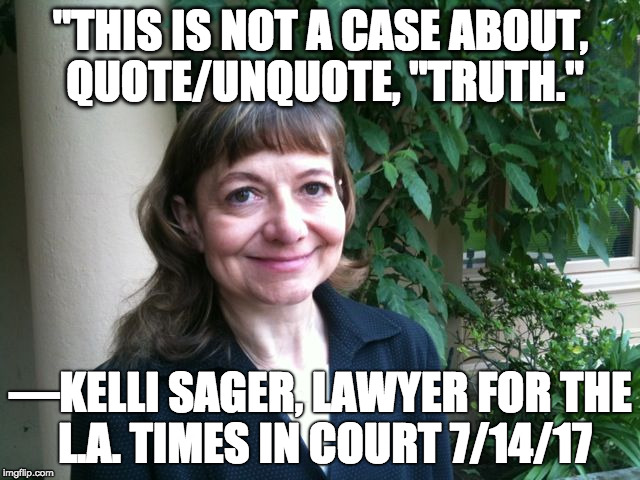California anti-SLAPP rulings are automatically appealable “de novo” ( which means the higher court looks at it with “fresh eyes”) to the Court of Appeals. Therefore, today my attorneys Jeff Lewis and Roger Lowenstein are filing our appellate brief in Ted Rall vs Los Angeles Times et al. We are asking the justices to overturn the lower court ruling issued last summer, which found that the Times has an absolute privilege under the First Amendment to publish anything it wants about anyone, even it’s false and libelous. The lower court acknowledged in its ruling that the enhanced audio showed that I wrote the truth in my May 2015 blog post about jaywalking.
Even though California’s anti-SLAPP law makes it extremely difficult to sue for defamation, we do not believe the law was intended to, nor does it say, what the Times is arguing. So we are fighting on.
This path is not without risk. The lower court awarded the Times about $350,000 in legal fees, and ordered me to pay them. If the Court of Appeals agrees with the Times, my case will be dismissed and I will have hundreds of thousands in additional fees.
Nevertheless, it is important that victims of injustice stand up for themselves, and not just for their own sake but for the betterment of society. If the LA Superior Court ruling stands, it would create a precedent that would effectively legalize libel. This could ruin countless lives and careers. In addition, the Times must be held accountable for its corrupt collusion with the LAPD. Media organizations should not create financial partnerships or close associations with law-enforcement agencies they are supposed to cover objectively. Given that the Times publisher was friends with the chief of police whom I mocked in my cartoons, is it any wonder that the LA Times does a lame job reporting on police malfeasance and violence against people of color?
After the court accepts it, I will post and disseminate a copy of our Appellate Brief online. If you wonder why the press is in trouble these days, it’s worth a read.
You can support my legal battle against the LA Times here.




